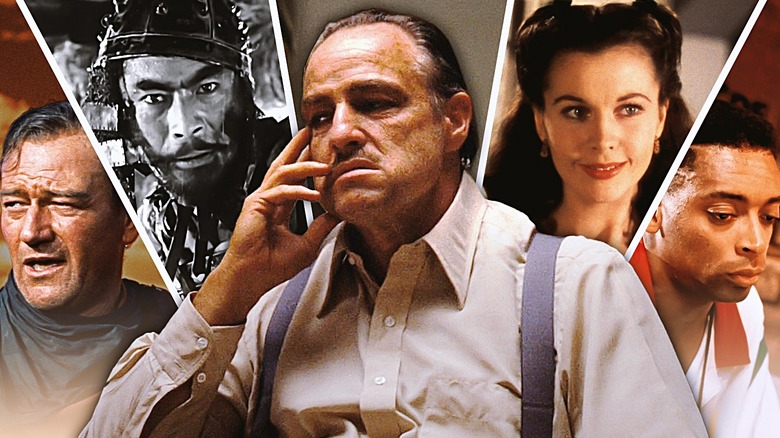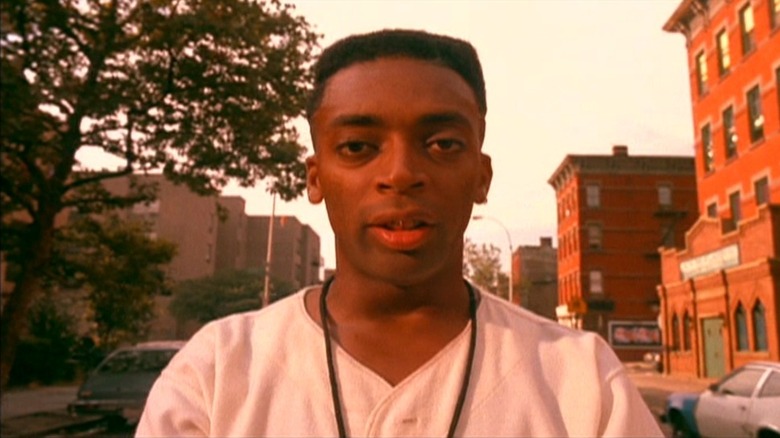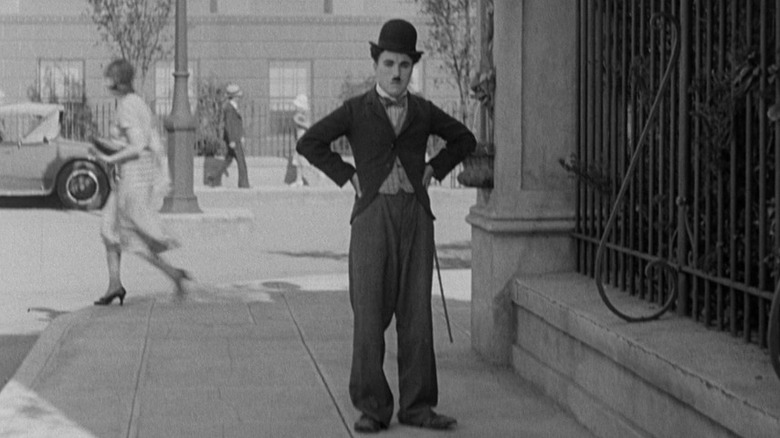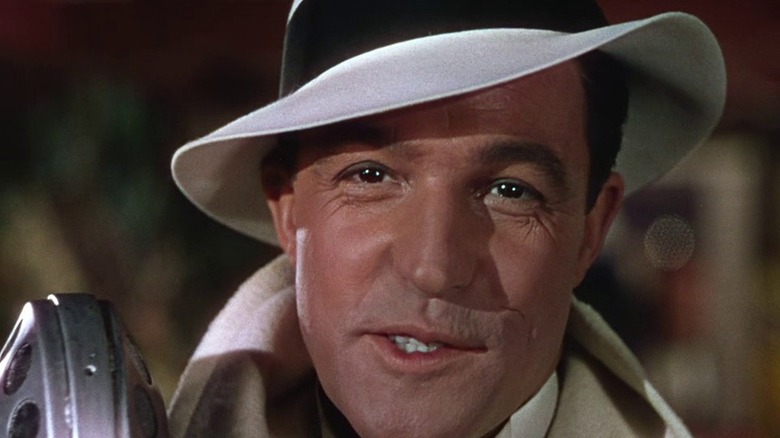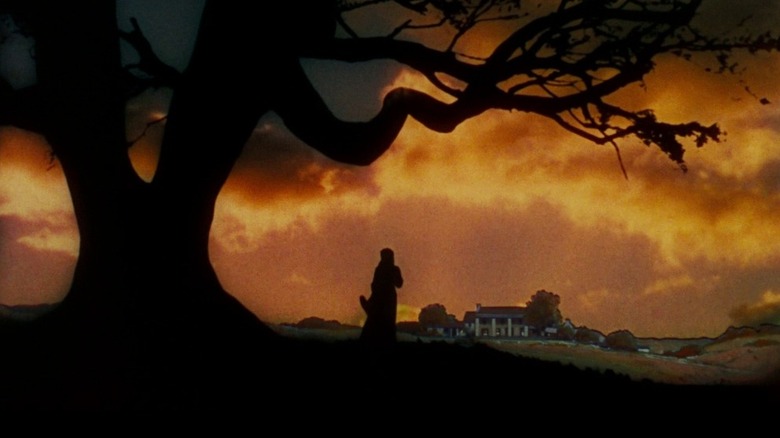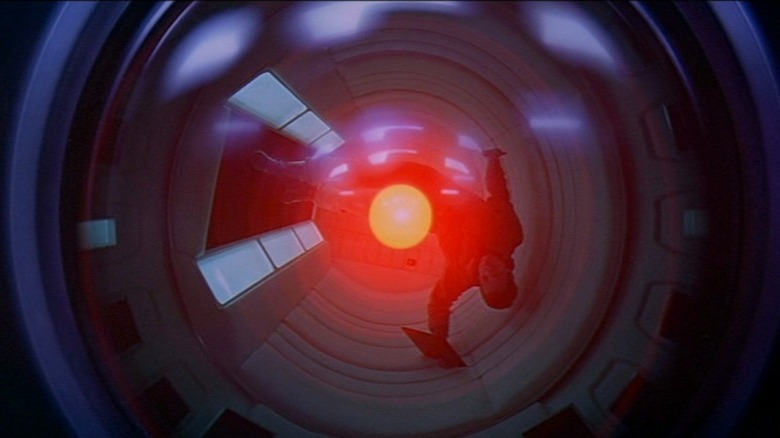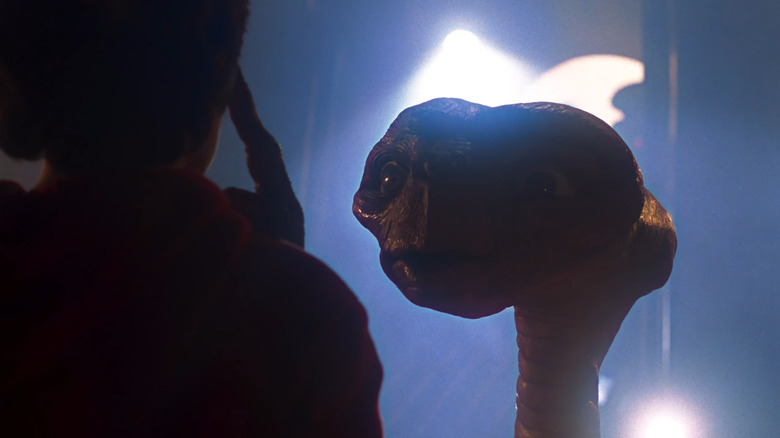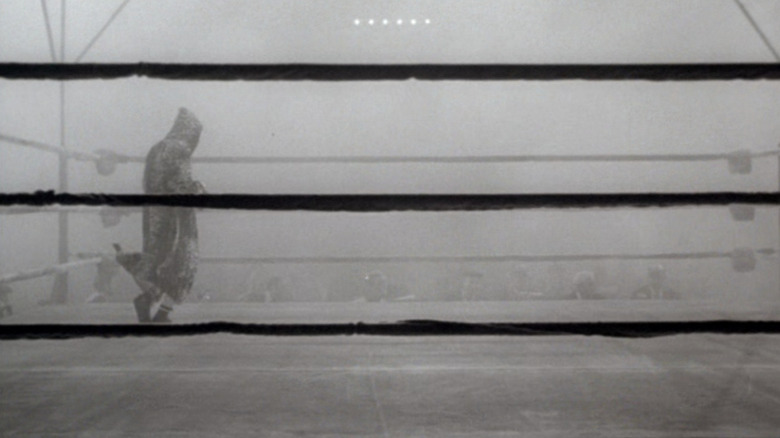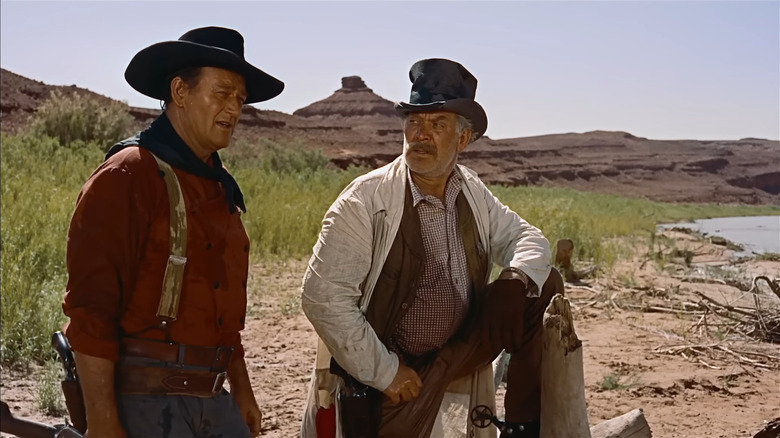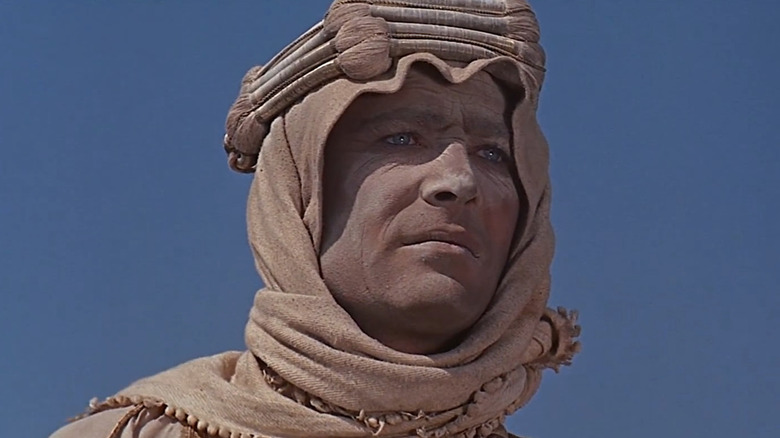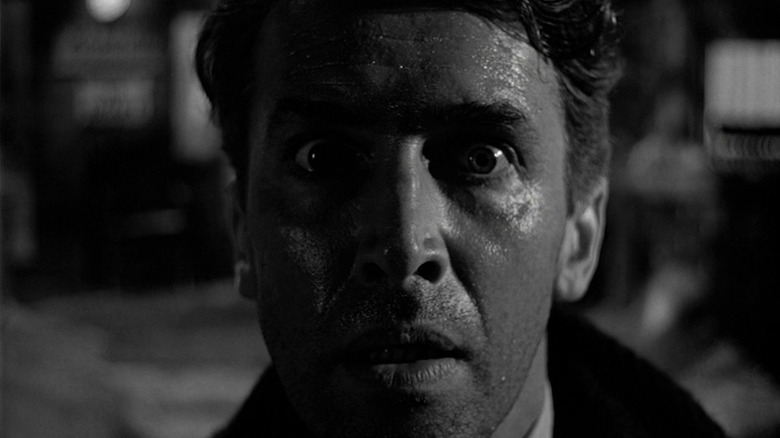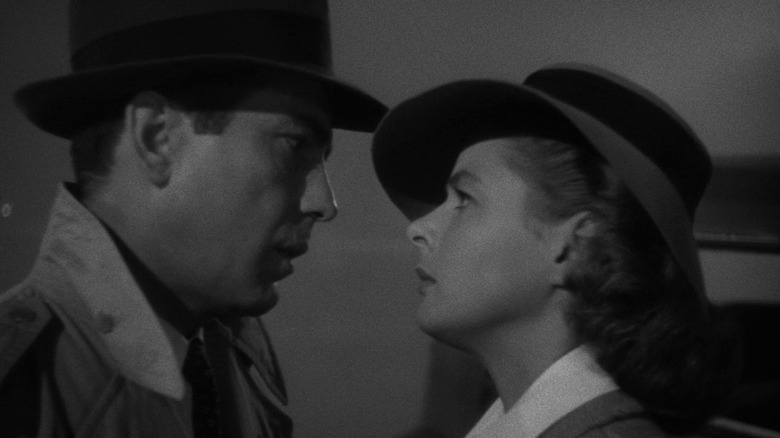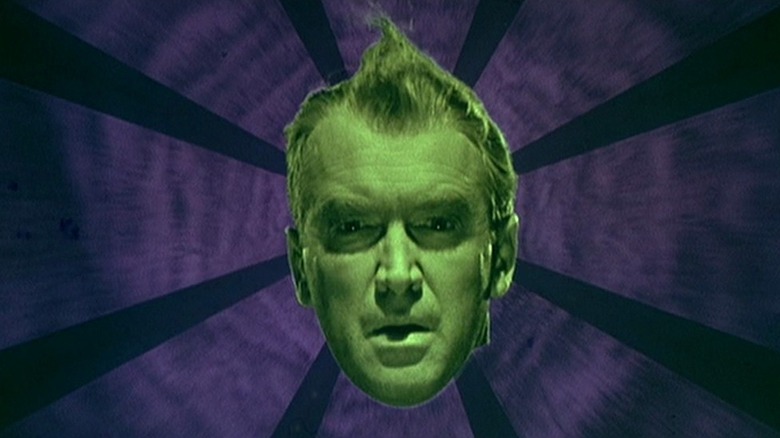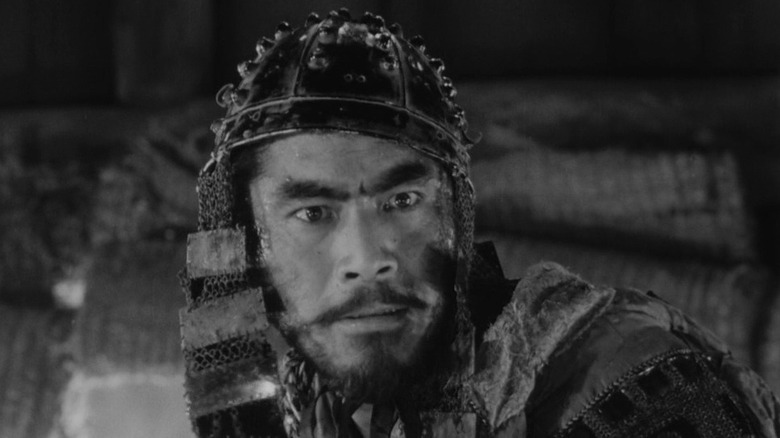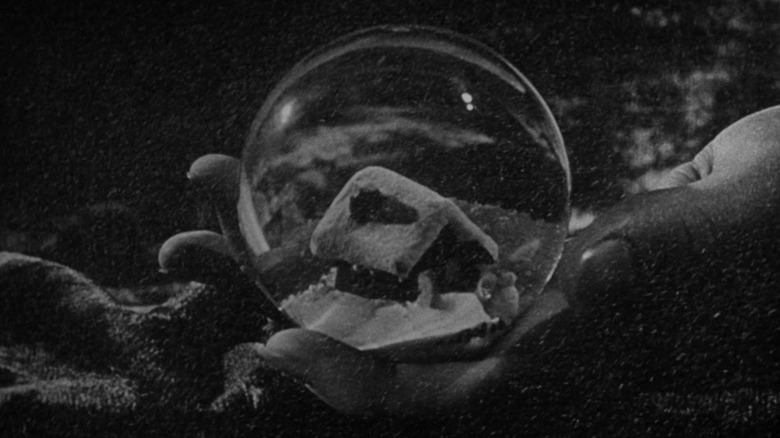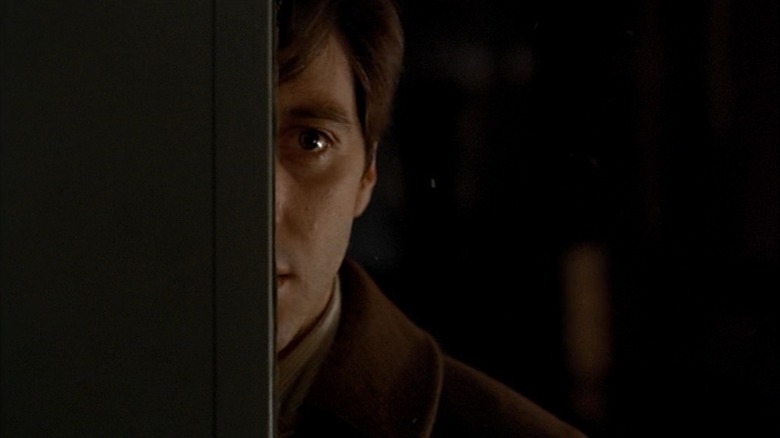The 15 Best Classic Movies, Ranked
What is a classic? It's hard to define, and definitely overused. How many new things claim to be a "classic," yet fall from favor once the hype train moves on? Classics take time. Once the initial praise has passed and moved onto something shiny and new, we're left with the movies that people still talk about years or even decades later. Sure, many Academy Award winners are now considered classics, but many more are not (check out the worst Best Picture Oscar Winners here). Meanwhile, some certifiable classics never won Best Picture or were even nominated.
For this list we're defining "classic movie" as a film that was made before 1990. Not to make you feel old, but that gives the movie more than three decades to make its case for being a classic. I'll also only be including one director's best movie, lest this list become exclusively Alfred Hitchcock, John Ford, or Akira Kurosawa movies. While personal preference will inevitably play a part, I am striving for objectivity, ranking movies not only based on my opinion, but by their quality, influence, and what they continue to mean to movies — and the generations of moviegoers who still love them to this day. This is sure to inspire debate, and 100% will generate disagreement, but for my money, these are the 15 best classic movies of all time.
15. Do The Right Thing
Though "Do The Right Thing" celebrated its 36th anniversary in 2025, it is the youngest entry on this list, and barely makes the cut-off given its 1989 release date. But its "youth" compared to the other films on this list is appropriate, as it is the masterwork of a hungry young filmmaker armed with prodigious talent and a righteous cause. Rarely has a director burst onto the scene with such undeniability, veracity, and ferocity as Spike Lee.
This was a young man who had something to say, and knew exactly how to say it in the most unforgettable way possible. "Do The Right Thing" is angry, but it is not an "angry movie." Beneath the broken-hearted bitterness borne by the brutal realities of urban black life is a sense of hope. Plenty of films make a statement; "Do The Right Thing" makes an impact. Lee tells his story by deploying all the tools of cinema, and displaying a mastery even filmmakers with twice as many years under their belts never reach. Make no mistake; "Do The Right Thing" may be a "newer" movie than the rest on this list, but it is undeniably a classic.
14. City Lights
Silent movies may be the purest form of cinema. Before the advent of audio, silent features told their stories exclusively with the principal tools of filmmaking — shooting, editing, and acting. The giants of the silent era include D.W. Griffith, Douglas Fairbanks, Mary Pickford, and Buster Keaton. But the greatest of them all was the funny man with the bowler hat and the toothbrush mustache. While Griffith's "The Birth of a Nation" birthed a new style of filmmaking (as well as horrifying cultural trends), and Keaton's "The General" is a masterclass in action, Chaplin's "City Lights" remains the most watchable of all silent movies, and thus the most timeless.
Chaplin played his signature character "The Tramp" in 35 shorts and five feature-length films, but if you only see one, make it this one. Every underdog romance movie ever made traces its lineage back to "City Lights," though none of them shine quite as bright. Though "City Lights" is not as monumental of a technical achievement as "The Birth of a Nation" or "The General," it surpasses them both in the most important characteristic of cinema: it makes you feel something. Nearly a century since its release, few films manage to make you feel as deeply as "City Lights." No sound required.
13. Singin' In The Rain
Despite the blockbuster success of "Wicked," movie musicals has seen better days. That's an understatement; the musical genre has all-but-vanished except for a few outliers, and many of those hid the fact they were musicals in their marketing ("Mean Girls," "Wonka"). It's a shame, as musicals are a proud part of Hollywood's legacy, and none shine brighter, sing louder, or dance prouder than "Singin' In The Rain."
While you'd be hard pressed to watch any movie, TV show, or even commercial that doesn't feature some special effects today, Gene Kelly's only special effect in "Singin' In The Rain" was his unbelievable dancing talent. Watching the man move with the ease that most people breathe still amazes audiences more than half-a-century since he first tapped across our screens. Kelly co-directed the movie with Stanley Donen, but "Singin'" is more than one man's achievement. Every part of this picture is on point, creating a top-to-bottom celebration of the movie musical, and the fullest realization of its potential.
12. Gone With The Wind
The Golden Age of Hollywood was an era less focused on achieving a filmmaker's singular vision and more on a shared, industry wide commitment to producing quality films. Sure, this was a process, but it wasn't an assembly line approach per se. More like highly trained quality craftspeople working towards a common goal of entertaining audiences. No movie better embodied this philosophy than "Gone With The Wind." To say it was the "Titanic" or "Avatar" of its day doesn't do it justice. No movie has ever sold more tickets in the United States, as seeing "Gone With The Wind" became a shared experience everyone wanted to join.
Yet "Gone With The Wind" isn't mindless spectacle for the sake of pushing product like so much IP-drenched slop today. It is a grand story that's nearly four hours (the longest movie on this list), yet never wastes a minute of its runtime. It stood atop the greatest year in movie history, winning Best Picture, while making Oscar history for Hattie McDaniel. It's rare for any movie to live up to its hype. "Gone With The Wind" exceeds it.
11. 2001: A Space Odyssey
Most cineastes would categorize Stanley Kubrick as an auteur, he had a journeyman-like skill at switching between genres as distinct as war movies, comedies, dystopian satires, and erotic thrillers. Perhaps it's no surprise he made the best science fiction film of them all, "2001: A Space Odyssey." If your idea of sci-fi is "Star Wars," "Star Trek," or even "Alien," then your appetite for "2001" may vary. This isn't an easy, breezy watch, but a dense film that demands multiple viewings to unpack, and even then you might never "get it."
But maybe we're not supposed to get "2001," just experience it. With only a semblance of a story, "2001" goes to infinity and beyond for the famous psychedelic finale (the reasons hippies in the '60s loved). In a way, the "plot" of "2001" is the story of humanity itself. What starts with our ape-like ancestors brutally murdering each other jumps millions of years into a far-flung future where humanity's destiny is bound only by the reaches of the universe, a cinematic expedition only Kubrick could conceive.
10. E.T. The Extra Terrestrial
Steven Spielberg's "Schindler's List" is arguably his greatest movie (and the best film of the 1990s), but "E.T. The Extra-Terrestrial" gives us the best glimpse into his heart as a storyteller. Sure, it may sound strange saying a movie about a flying magical alien is a filmmaker's most personal movie, but hey, that's one of the many reasons why I love Spielberg.
"E.T." is undoubtedly grand entertainment and the greatest family film ever. But what makes it so is because the movie doesn't condescend to the children in the audience. Watching as adults we forget just how scary "E.T." could be when we were kids, while looking at it through a grownups' eyes we can catch things we missed as children. Even more than "Kramer vs. Kramer," this film is a brilliant examination of what divorce does to families. Most children of divorcees don't have alien friends to keep them company, so Spielberg (a child of divorce himself) created one. Many have criticized Spielberg for being schmaltzy, but only the hardest of hearts can watch "E.T." without smiling.
9. Raging Bull
Martin Scorsese grew up an Italian Catholic kid in Manhattan, New York, with the sounds of the street and the dangers of gangsters outside his bedroom window. Yet while his filmography is full of masterpieces about faith and crime, it's ironic that his greatest film is about something he claims to know nothing about or even to understand: boxing.
Boxing has been a part of movies for more than a century, as it's the most cinematic of all sports. Yet Scorsese made the best of the bunch by never shying away from the bestial brutality of the sport, or of one of its most successful practitioners: Jake La Motta (Robert De Niro). Scorsese and De Niro are one of the best actor-director collaborations ever, and "Raging Bull" finds both at their best. Scorsese expertly deploying every cinematic technique in the book to tell the story. De Niro diving as deep as any actor ever has to convey his character. "Raging Bull" is more than a boxing movie. It's an unwavering glimpse into the soul of a violent man whose appetite for destruction ruins his life, but makes him a legend.
8. The Searchers
Almost every filmmaker on this list was influenced by John Ford. But despite winning four Oscars for Best Director, his greatest contribution to the movies was a film that wasn't even nominated: "The Searchers." Make no mistake, this movie is difficult to watch. Ford favorite John Wayne gives his greatest performance as Ethan Edwards, a complex, hateful man who is neither a hero nor villain, inspired to face incredible odds to save his kidnapped niece, but powered by a vile racism that poisons his own soul.
"The Searchers" is more than "just a western;" it's a commentary on the American West itself, at a time when westerns were still the most popular genre, and long before revisionist westerns that followed in its footsteps (yet mostly fall far short of its greatness) made deconstructing the west a cliche. "The Searchers" forces us to confront our past, yet refuses moralists any easy out. Civilization depends on violent men like Ethan Edwards to confront a wicked world, and then banishes them to protect that same world from men like him. This paradox lies at the heart of "The Searchers," and the American West. It's fitting it came the man who more than any other established the western mythology.
7. Lawrence of Arabia
You may never visit the endless desert of Arabia, but you can do the next best thing and watch David Lean's "Lawrence of Arabia" on the biggest screen you can find. More than any other movie on this list, "Lawrence" warrants watching in a theater. If movies are meant to take you to places you have never been and make you feel like you are actually there, none have ever done it better than "Lawrence."
With his camera, Lean manages to make you feel the heat from the oppressive desert sun and the scorching sand whipping against your skin. But "Lawrence of Arabia" is a movie not a theme park ride, and manages to make every minute of its massive, nearly four-hour runtime matter. As grand as its epic scope is the story it is telling; people who have been fighting for centuries rising up as one against their Ottoman oppressors, and the man who made it happen. Lesser actors would be swallowed by the surroundings. Peter O'Toole makes the larger-than-life T.E. Lawrence the "biggest" part of one of the greatest film epics ever.
6. It's A Wonderful Life
Storytellers have long told tales of "great" people who have achieved something spectacular. "It's A Wonderful Life" is different; it dares to tell a story about an ordinary man living an ordinary life who has nevertheless made a tremendous impact that is invisible to him, but profoundly important to the people around him. It may be strange to say, but in this way "It's A Wonderful Life" is subversive. Not because it's rebelling against some injustice (well, besides Mr. Potter's voracious avarice), but because it elevates the regular to the extraordinary.
The takeaway is that if an everyman like Bailey can be a "hero," we can be too. Yet please don't think this is a saccharine or schmaltzy picture. Far from it. Both director Frank Capra and star James Stewart were decorated WW2 veterans who knew the world could be a mean, nasty place. Yet it takes guts to rise about that. Famously "It's A Wonderful Life" failed to connect with moviegoers in the 1940s, but found its audience when it was released in the public domain. Now it's more than a movie, but a Christmas season tradition, with a message that should be celebrated all year long.
5. Casablanca
"Casablanca" is a capital M Movie that doesn't set out to be "high cinematic art," yet manages to be better than just about any other. The movie's greatness starts with the script. Twin brothers Julius and Philip Epstein along with Howard Koch produced perhaps the greatest screenplay ever. Seriously, you could just stage a public reading of "Casablanca" and still have a blast. Besides being the most quotable movie of all time, the script keeps the sprawling story moving at a crisp pace, while imbuing every character with clear, compelling motivation. And what about the characters?
At a time when the Hollywood studio system still cared deeply about character actors, "Casablanca" assembles the best at the time (and perhaps all time): Sydney Greenstreet, Conrad Veidt, Peter Lorre, Dooley Wilson, and Claude Rains. All of them ably elevate the movie's leads: Ingrid Bergman and Humphrey Bogart. Have two actors ever given better "movie star performances?" It's as impossible to not root for Bogart's cynical Rick Blaine as it is to not fall for Bergman's luminous Ilsa Lund. Let's not discount director Michael Curtiz, who earned cinematic mortality with his crisp, expert direction of "Casablanca." Just as the doomed lovers will always have Paris, movie lovers will always have "Casablanca."
4. Vertigo
There was no blowback when "Citizen Kane" was dethroned after decades of dominance as the greatest film ever according to critics and filmmakers due to the deep admiration of its usurper — Alfred Hitchcock's "Vertigo." Roger Ebert once wrote: " 'Notorious' is the most elegant expression of the master's visual style, just as 'Vertigo' is the fullest expression of his obsessions." While Ebert was right on the money regarding "Vertigo" as a deep dive in Hitchcock's psyche, he may have undersold its cinematic style.
Through the power of filmmaking techniques, including the famed "Vertigo Effect," Hitchcock represented both the physiological and psychological state of Scottie Ferguson (James Stewart). You personally feel the man's suffering the paralyzing effects of his acrophobia, as well as his profound sense of despair when losing his beloved (twice).
"Vertigo" is Hitchcock's masterpiece, and Stewart's as well (he's the only actor to appear twice on this list). "It's A Wonderful Life" championed an everyman rising out of the darkness; "Vertigo" was about another one succumbing to it. It's remarkably brave work for an established Hollywood star to toy with his established screen persona, and speaks to his trust in his director. While this list could easily be populated by Alfred Hitchcock movies, his masterpiece towers above them all.
3. Seven Samurai
Is "Seven Samurai" a singular artistic achievement — or a rip-roaring, swashbuckling adventure film that's just as exciting as any of blockbuster films it inspired? Both. Besides being the best ancient war movie, the finest samurai movie ever, and among the greatest foreign films of all time, "Seven Samurai" is simply one of the greatest movies ever, period. Even if you haven't had the pleasure of watching it, you have seen its influence across pop culture, both stateside and abroad. It directly inspired its American remake "The Magnificent Seven," but the 1954 film cast its long shadow across both the western and action-adventure genres. Some have even said it's the "greatest action movie ever," and you'll hear no argument from me.
While "Seven Samurai" is indisputably populist in its ambitions (it was a massive blockbuster in Japan), its aims are deeper than that. The story couldn't be more simple (villagers hire seven samurai to defend them from bandits) yet it also manages to develop multiple characters with none getting shortchanged, showcase Kurosawa's gift for directing both action scenes and intimate character moments, and provide pointed commentary on class, heroism, and duty that are both distinctly Japanese, yet profoundly universal. Many films have imitated "Seven Samurai." None will ever match it.
2. Citizen Kane
Check out any "greatest movies of all time" list and Orson Welles' "Citizen Kane" is probably sitting pretty at number one. It's as cliche to call "Citizen Kane" the best as it is to be edgy and say it's not (this is the internet, after all). There's no denying "Citizen Kane" is about as good as movies get. It was ahead of its time and still is thanks to its use of non-linear storytelling, shifting viewpoints, deep-focus photography, tilted camera angles, among other techniques. Perhaps that's why some movie fans "don't get it" with "Citizen Kane;" we take for granted today the innovations it inspired in 1941.
If the film were simply a technical marvel it wouldn't belong on this list. When we laundry list its accomplishments, we lose sight of the fact that it's just a darn-fine, entertaining movie. It's a complex character study, a funny satire, a deconstruction of the American Dream, and a bit of mystery as well. There's a lot going on with "Citizen Kane. The fact it never crumbles under the weight of its own ambition is a cinematic miracle. We can debate where "Citizen Kane" goes on a "best-ever" ranking; there's no disputing it belongs.
1. The Godfather
Can any movie truly boast of being the "best of all time?" Maybe not. But none make a more rightful claim to the title than Francis Ford Coppola's "The Godfather." Don't take my word for it. Steven Spielberg called the it "the greatest American film ever made." I'd say it's the greatest film ever, period. What makes it so? There are the brilliant performances of iconic characters like Marlon Brando as the doomed don Vito Corleone, and Al Pacino as the tragic Michael Corleone. There is its profound impact on both cinematic and popular culture, as few films are as beloved by both cineastes and casuals as "The Godfather."
All of these attributes (and more than I can mention here) are worth praising. For me, what makes "The Godfather" the greatest movie of all time is that it's a bridge between two defining eras of American cinema. No other film better blends the grandeur, scope, and beauty of the Golden Age of Hollywood with the filmmaker-driven experimentation of the New Hollywood. "The Godfather" would be right at home in any era, which is why it transcends every era as the best classic movie of all time.
